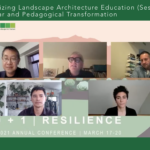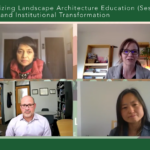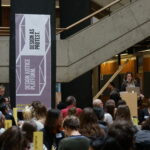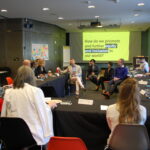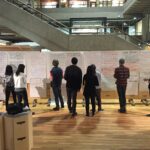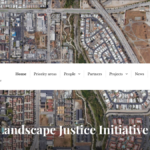Decolonizing Landscape Architecture Education?
With the twin pandemics of COVID-19 and systemic racism, calls to dismantle longstanding barriers and biases in society have been permeating our political, social, and economic systems, including design education. Amid the recent calls for change, “decolonizing design” has become a rallying cry among many students and faculty in disciplines ranging from architecture to art and design. But what does decolonizing mean in design? For landscape architecture, what does it mean to decolonize our educational practices? What changes are necessary to transform the power structure that produces and sustains societal inequity through design? What are the challenges and barriers? What actions and initiatives already exist?
These questions were central to a two-part, main-stage panel discussion at the annual conference of the Council of Educators for Landscape Architecture (CELA) held online in March 2021. The first session focused on issues related to curriculum and pedagogy, featuring David de la Peña (University of California, Davis), Alison Hirsch (University of Southern California), Joern Langhorst (University of Colorado, Denver), and Deni Rugger (Norwegian University of Life Sciences). The second session addressed cultural and institutional transformation, featuring Chingwen Cheng (Arizona State University), Michael Rios (University of California, Davis), and Julie Stevens (Iowa State University). We served respectively as the moderators for the two panels. See summaries of the sessions here: Curricular and Pedagogical Transformation, Cultural and Institutional Transformation.
Decolonizing Landscape Architecture Education? 100+1 | Resilience: CELA 2021 Conference, March 17-20, 2021.Co-organizers: Jeff Hou (University of Washington, Seattle), and Mallika Bose (Pennsylvania State University).
